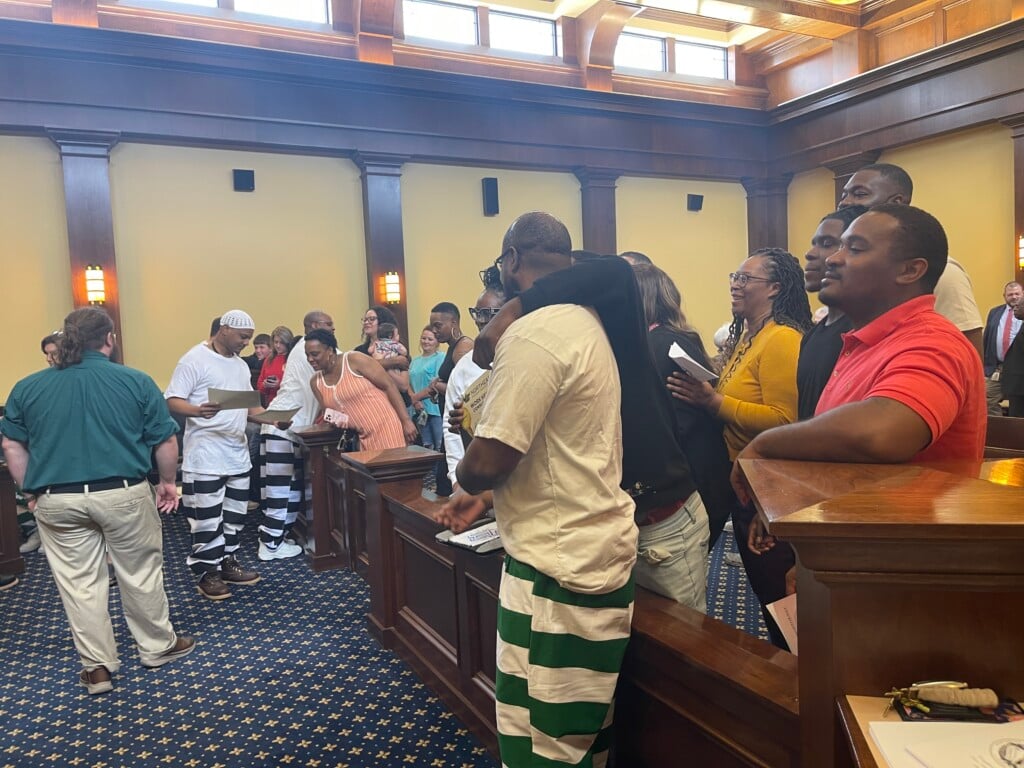Love or Hate: No Easy Answers on State Immigration Debate
As chairman of the Mississippi House Judiciary B Committee, the lawmaker from Braxton recently presided over a 4 ½-hour hearing to let a wide range of people discuss whether the state should regulate illegal immigration.
Attorneys, immigrants, business people, tea party members, immigrant-rights advocates and others packed a Capitol committee room, and Gipson remained attentive as more than three dozen people spoke.
Republicans control both chambers in the Mississippi Legislature. During the 2012 session, the House passed a bill that would’ve required police or deputies to report to U.S. Immigration and Customs Enforcement every time they arrest someone they suspect of being in the country illegally. The bill also would’ve prohibited any illegal immigrant from applying for a driver’s license or business license.
Several influential groups opposed the measure, including the Mississippi Economic Council and the Mississippi Farm Bureau Federation. Sheriffs and local elected officials also expressed concerns about unfunded state mandates. Senate Judiciary B Committee Chairman Hob Bryan, D-Amory, killed the bill by not bringing it up for debate.
Immigration enforcement is one of Republican Gov. Phil Bryant’s priorities, and it’s certain to be debated again in 2013.
Pepper Crutcher, a Jackson-area attorney who advises business clients about immigration enforcement, spoke at the Aug. 23 hearing. He said because of the ruling the U.S. Supreme Court issued in June about Arizona’s immigration law, states are limited in what they can do about immigration. For example, he said they can regulate employers and those who get paid to recruit immigrants.
People at the hearing didn’t get into shouting matches, but feelings were evident in their body language. When an advocate of immigrants’ rights said a state enforcement law could empower white supremacists, several people sighed deeply. When a supporter of stronger enforcement said immigrants aren’t paying taxes, others rolled their eyes.
Bishop Joseph Latino of the Catholic Diocese of Jackson urged legislators to be compassionate.
“If a law violates human rights and human dignity, it cannot be considered a just law,” Latino said.
Thomas Ray Floyd, owner and operator of a small construction firm in central Mississippi, told lawmakers: “I run a legal and ethical business.”
He said he opposes any laws that would allow checkpoints where people would have to show immigration papers. But he wants state leaders to understand that he’s at a disadvantage because he competes against some businesses that hire immigrants who work for substandard wages.
Rep. Beckie Currie, R-Brookhaven, has been among the most outspoken lawmakers in pushing for an immigration enforcement law. At one point during the hearing, she referred to “illegal immigrants,” but then quickly said she meant to say “illegal aliens” — a phrase that makes some people cringe.
“I don’t like that term. I don’t see antennas on people’s heads,” Jackson restaurateur Clarence Bolls said later.
Sgt. Brad Vincent of the Mississippi Highway Patrol said organized crime groups often use immigrants who speak little English to transport illegal drugs within the United States.
“It’s the lure of easy money,” Vincent said. “Our borders are very porous.”
But Vincent added: “The majority of illegal aliens I stop … are not here to commit crimes.”
Gipson pointed out that the 2012 bill would’ve prohibited racial profiling.
Israel Martinez, who was born in Mexico and has lived in Mississippi eight years, was skeptical: “In our experience sometimes, police officers do stop people because they look Hispanic.”





Leave a Reply